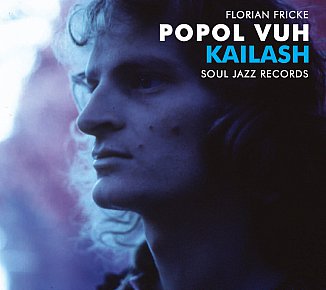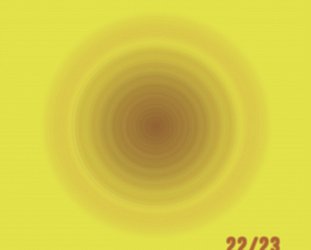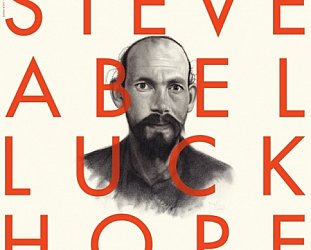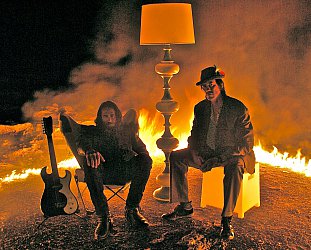Graham Reid | | 1 min read
Florian Fricke: Earth View

There is perhaps a generation of people whose view of the world, cultural colonialism and image-making was shaped by two key films from director Werner Herzog: Aguirre; The Wrath of the God in the early Seventies, and Fitzcarraldo a decade later.
Those extraordinary stories of human effort and failure set in the the unforgiving world of the jungles of South America -- where Nature is indifferent and God an absentee landlord - both came with extraordinary and memorable music from the German group Popul Vuh, who were "post-rock" long before the term was invented.
As much as the images on the screen, the music of Popul Vuh (see the clip below, the closing sequence of Aguirre) shaped the audiences' responses.
Despite that -- unlike their peers Can, Amon Duul, Neu! and Tangerine Dream -- Popol Vuh seem to have been relegated to a far corner of music consciousness.
There have been no major reissue programmes which have garnered attention in the way that Kraftwerk and Nue! have enjoyed, and the death of Popol Vuh founder/keyboard player Florian Fricke in 2001 -- a classical composer whose tastes and abilities ran from playing Mozart to recording with Indian musicians -- has meant their extraordinary contribution has largely been overlooked.
Fricke was in the vanguard of what we might jokingly call "applied World Music" in that he drew from global sources for Popol Vuh but then -- later in life after having explored the possiblities of solo Moog and electronic sounds -- he returned to solo piano, all the while bringing in that collective cultural memory he had accrued.
This frequently beautiful and always evocative double disc set -- one of which is his solo piano recordings which was one of his dying wishes -- takes its title from the hour-long film he made with Frank Fielder (also a founding member of the genre-ignoring Popol Vuh) about his pilgrimage to one of the world's most holy mountains in western Tibet.
The DVD of that film -- with music by Fricke and Popol Vuh, tracks with spaciously evocative synths and chants on the other disc -- comes with this reflective collection.
And on that first disc of solo piano you can discern his love for gently repeated melodic figures, a respectful stateliness in his improvised work and that classical tradition which gave his work a grounding.
Created with the assistance of Florian Flicke's estate, this is a fine and concise tribute to man whose music shaped the way we could see and hear the world: whether it be the past, present or, oddly enough, that unknown future.





post a comment